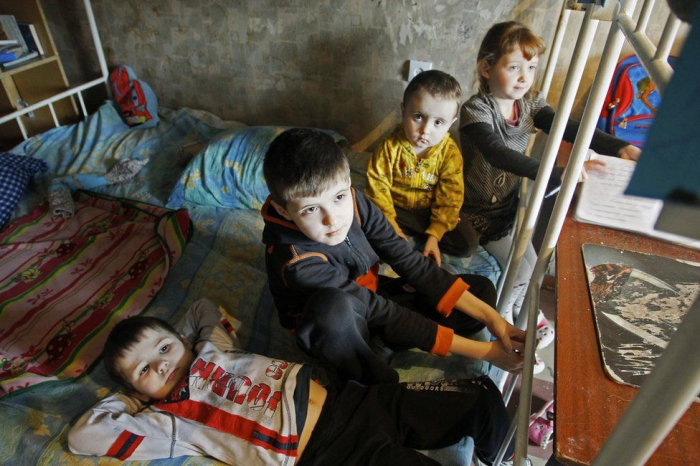When countries wage war it can affect children profoundly, even if the conflict is thousands of miles away.
Hearing and seeing images of war can undermine children’s need to see the world as a safe and secure place. Through television and social media, children are exposed to the sights and sounds of war repetitively each day.
Kids are seeing the horrors of war: missiles, sirens, exploding bombs, plumes of dark smoke, tanks, ground troops, destroyed houses, bloodied people, large-scale attempts at evacuation. It is easy to see how these grim images of destruction and death are harmful to children, especially in light of the 24-hour news cycle.
Kids who are exposed to war via media are more likely to develop symptoms of post-traumatic stress disorder. This is called vicarious trauma.
In a 2007 study, researchers found that the amount of time children spent viewing 9/11 coverage on television predicted an increased risk of PTSD symptoms.
Symptoms of vicarious trauma often echo those of PTSD experienced by children who have been direct victims of trauma. In the “bulls-eye model,” it is posited that negative mental health effects on children (and adults) are directly related to how close the person is to the center of the traumatic event – the bull’s eye. But studies show that negative mental health effects extend far beyond the immediate event itself.
Media exposure affects kids
For example, psychology professors Jonathan Comer and Anthony Steven Dick, in their research on kids after Hurricane Irma in 2017, found that a high level of media exposure was associated with frequent reporting of post-traumatic stress symptoms.
In response to exposure to war, kids will experience symptoms consistent with their age and developmental level. For example, very young children may show regression, with an increase in tantrums, baby talk, whining and bedwetting.
Middle school-age children may want to talk about the gruesome details of the war. These kids might deny the war’s impact on them because they do not want to admit that they are anxious, scared and vulnerable. Instead, they may show increased activity and a false bravado.
What about our democracy:Are you watching Ukraine defend democracy? Are we doing enough to protect our own?
High school kids may have stronger emotional reactions to the war because they understand the issues and specifics better. Anxiety, fear and substance abuse might increase in this age group.
Kids who are dealing directly with other traumas at the same time – such as a divorce or a death in the family – are at higher risk for developing anxiety during war.
How parents can help
So how can parents help? What can they do to assuage their children’s fears and anxiety? Here are some suggestions:
►Limit your child’s exposure to the war by minimizing his or her time on television and online. Turning off and unplugging electronic devices is good for your child’s mental health.
►Reassure your child and emphasize that he or she is safe, protected and loved.
►Use plenty of nonverbal reassurances, too. This includes smiles, hugs, cuddling and kisses.
►Allow children to talk freely and openly about their feelings. Talking is a good way of heading off psychological symptoms.
►It is OK to discuss some of the details of the war but do so in language and level of complexity appropriate for your child.
►Be ready to revisit the topic again and again. Each time, respond truthfully and empathically to your child’s questions.
►Even if you are concerned and upset, always project confidence in your ability to protect and love your child.
►Teachers and other adults can help by remaining calm, cool and collected.
Children and teenagers struggle with the images of war. While symptoms of PTSD do occur, children are resilient and can be soothed and calmed by their parents and other adults around them.
We need to shield our kids from the harshest, most indefensible realities of our world. It is our responsibility to protect the innocence of childhood so that our children and teenagers can flourish without exposure to the shattering blows of aggression and cruelty in their lives. Even when it is happening thousands of miles away.
Alan D. Blotcky is a clinical and forensic psychologist in private practice in Birmingham, Alabama. He can be reached at [email protected].
More about:
















































